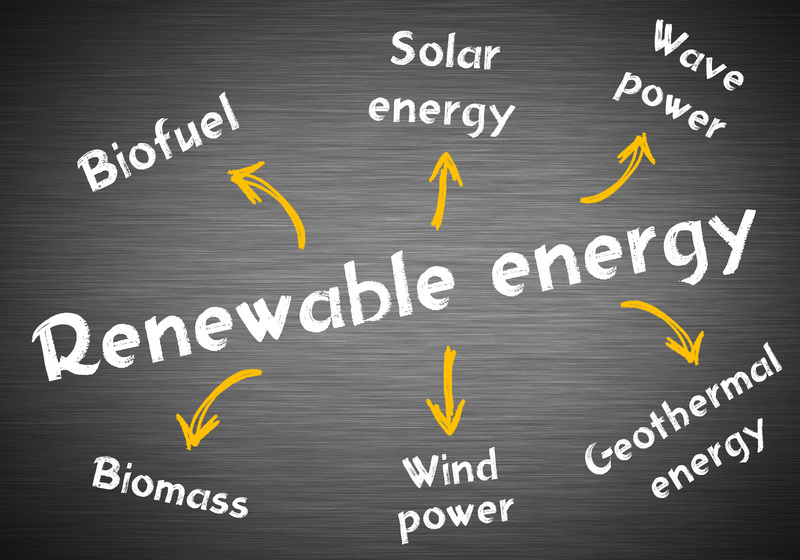Unlock Expert Tips For Better Home Recycling Practices
Are you eager to improve your home recycling practices? Adopting expert-endorsed methods can optimize your recycling habits, help the environment, and create a cleaner neighborhood. In this comprehensive guide, we'll unlock the secrets to better home recycling with actionable tips, the latest trends, and answers to frequently asked questions.

Why Effective Home Recycling Matters
Recycling is more than just separating paper and plastic; it's a crucial act that impacts our ecosystem, conserves natural resources, and reduces the waste sent to landfills. According to the EPA, only about 32% of US waste is recycled--yet with better practices, this number can be improved dramatically.
- Reduces landfill waste
- Conserves resources like water, minerals, and timber
- Minimizes pollution and greenhouse gases
- Creates jobs in the recycling and manufacturing industries
The Foundation: Understanding What Can and Cannot Be Recycled
Before you start sorting, it's essential to know what items are recyclable at home. Rules can vary by municipality, but generally, these materials are acceptably recyclable:
- Paper: Newspapers, magazines, office paper, cardboard (flattened), and paper mail
- Plastics: Bottles, jugs, food containers marked #1 and #2 in the recycling symbol
- Glass: Clear, green, or brown bottles and jars
- Metals: Aluminum cans, steel food cans, foil (cleaned)
Non-recyclable real-life examples: Plastic bags, sandwich baggies, greasy pizza boxes, Styrofoam, disposable coffee cups, and food-contaminated items--these often contaminate recycling loads or require special programs for proper disposal.
Pro Tip: Always check with your local recycling guidelines
Unlocking Expert Strategies For Effective Household Recycling
Unlocking expert tips for better home recycling practices involves going beyond just separating waste--it's about creating sustainable habits, reducing contamination, and proactively seeking ways to make an environmental difference. Here's how:
1. Set Up an Efficient Home Recycling Station
- Designate multiple bins: Have separate, clearly labeled bins for paper, plastic, glass, and metals. Use images for clarity.
- Place bins in accessible areas: Not just in the kitchen--consider the bathroom, office, and garage too.
- Use a compost bin: Divert food scraps from landfill and create nutrient-rich compost for your garden.
2. Clean and Dry Your Recyclables
- Rinse containers: Ensure plastic, glass, and metal items are free of food residue before placing them in the bin. This prevents contamination.
- Allow items to dry: Moisture can disrupt the recycling process, especially for paper and cardboard.
Contaminated or wet recyclables can cause entire loads to be diverted to landfill. Take a few extra seconds to keep things clean.
3. Flatten and Break Down When Possible
- Flatten boxes: Saves space in your recycling bin and helps with handling at recycling facilities.
- Remove packing materials: Take out foam, plastic wrap, or tape from boxes before recycling.
This step maximizes bin capacity and prevents non-recyclable materials from sneaking into the recycling stream.
4. Avoid 'Wishcycling'
- Don't assume everything with a recycling symbol is accepted: Some plastics and materials are too costly or difficult to process.
- Avoid plastic bags and film: These tangle machines. Recycle them separately at designated collection points, usually at supermarkets.
5. Stay Up-to-Date
- Follow your local program's updates: Markets and technologies change. What's recyclable today may not be tomorrow.
- Request notifications: Sign up for email alerts or download your local app for real-time info.
Next-Level Home Recycling Hacks from Experts
Want to unlock even more advanced recycling tips for home use? These often-overlooked recommendations can make a major difference in your recycling performance:
Separate Lids and Caps
- Remove caps and lids from bottles and jars: Different plastics need to be sorted for proper processing.
- Some municipal programs now allow lids to be recycled if reattached, but always check your local guidelines.
Don't Recycle Items Smaller Than a Credit Card
Small items--like straws, bottle caps, or shredded paper--can jam sorting equipment. Bundle these into larger items or reuse at home.
Bundle Paper Carefully
- Don't shred paper unless required: Shredded paper is hard to process.
- Keep paper dry and unbundled, unless local guidelines state otherwise.
Utilize Special Drop-Offs for Hazardous Items
- Electronics, batteries, and lightbulbs: Never place in the regular recycling bin; use community drop-off events or local retailers.
- Paints, chemicals, and old medicines: Follow disposal instructions from your waste provider or community hazardous waste programs.
Educate the Household
- Empower your family: Teach kids recyclable items with games and visuals.
- Hang a laminated, up-to-date recycling chart near the bins.
Commonly Overlooked Recycling Mistakes
- Bagging recyclables: Never bag recyclables in regular trash bags as they can be mistaken for landfill waste.
- Mixed-material packaging: Items made of layers (like juice cartons or chip bags) often can't be recycled in regular bins.
- Throwing away green waste: Organic materials can be composted instead of trashed.
- Ignoring seasonal items: Holiday lights and decorations should be taken to special e-waste facilities.
Better Home Recycling Sustainability Tips
Going green goes beyond recycling! Try these sustainable habits to further lessen your environmental impact:
- Reduce and Reuse Before Recycling: Opt for products with minimal packaging or reusable containers.
- Buy recycled goods: Support the market for recycled materials by choosing 100% post-consumer items.
- Compost organics: Kitchen scraps and yard waste create valuable compost for gardening.
- Donate unwanted items: Clothing, toys, and electronics can find new homes rather than clogging landfills.
Understanding Recycling Symbols and Labels
Ever felt confused by the symbols on your packaging? Understanding recycling labels is key to smarter sorting:
The Mobius Loop
The three-chasing-arrows symbol denotes a product is recyclable, but not necessarily accepted locally. Check for numbers 1-7 inside that symbol--each stands for a plastic resin type, and often only #1 and #2 are widely recycled at the curb.
Other Important Labels
- Widely recycled: Most curbside programs accept these items.
- Check locally: May only be recyclable in some areas or through special programs.
- Not yet recycled: Place in trash or check for specialty recycling opportunities.
Answers To The Most Common Home Recycling FAQs
How clean must recyclables be before placing them in the bin?
Remove major residues (rinsing containers briefly is fine), but items don't need to be spotless. Food or liquids cause contamination and odors.
Is it okay to recycle pizza boxes?
If they're free of grease, sure! Tear off and compost any oily sections. Clean cardboard is always preferable.
Can I recycle glass in my local curbside bin?
It depends. Some cities have phased out glass recycling due to costs. Always check your service provider for the current policy.
What do I do with plastic bags?
Never put them in the curbside bin. Collect and return to store drop-offs or explore reusability options at home.
Should aluminum foil be cleaned before recycling?
Absolutely. Food residue makes foil non-recyclable. Scrub off any stuck-on material before tossing in the bin.

The Future of Home Recycling
Innovative home recycling practices are making it easier and more efficient. Many communities now offer:
- Smart recycling bins with QR codes and app integrations for quick sorting tips
- Compost pickup services for food and green waste
- Extended producer responsibility (EPR) programs--encouraging brands to design recyclable packaging
- Incentives and rebates for households meeting recycling goals
Conclusion: Take Action for Better Home Recycling
Unlocking expert tips for better home recycling practices turns a daily task into a powerful act of environmental stewardship. Organize your home recycling station, stay informed with the latest local guidelines, clean and sort diligently, and never stop educating yourself and your household. Your commitment to recycling right can inspire others and make a measurable difference for the planet.
Ready to boost your home recycling success? Start with one tip today, and share your own hacks with friends and community groups. The greener future starts in your kitchen!